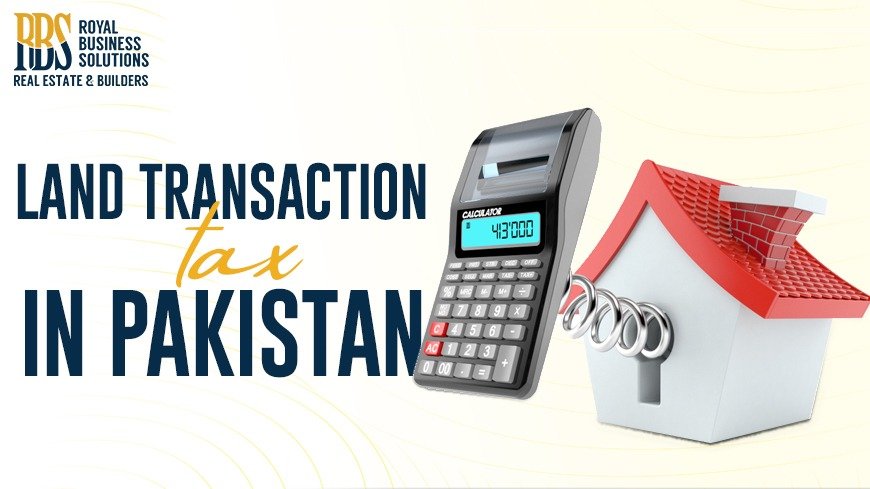- May 18, 2023
- Posted by: Muhammad Shehzad
- Category: Blogs

You aim to transform society, then. And you too wish to participate in its growth? Good! Begin paying taxes. A society’s growth and prosperity depend on its citizens acting as responsible members of society. Responsible citizens keep an eye out for the nation’s social and economic well-being. We sometimes believe it’s impossible to become as responsible citizens. This is untrue, though. You may accomplish a lot with minor adjustments and baby steps. Therefore, paying your taxes honestly is one of the simplest ways to help society get back on track. Let’s discuss the changes to the land transaction tax in Pakistan.
We must also support this cause if we truly want to see our country prosper and grow in enormous leaps and bounds. Moreover, property taxes differ from city to city. Rawalpindi and Islamabad should be at the top of your list if you’re seeking for an extraordinarily pleasant and comfortable place to live.
Gulberg Greens Islamabad where you can build your dream home.
The vast majority of Pakistanis do not pay taxes. This in turn damages the state of our economy and finances. The amount of money the government receives is insufficient to fund the infrastructure, healthcare system, educational system, and security. Additionally, because there are no taxes, the government must rely on outside revenue sources to fund itself. This includes loans with high interest rates from banks and other countries.
What is Land Transaction tax in Pakistan?
Land Transaction Tax, also known as property transfer tax or stamp duty, is a tax imposed on the transfer of land or real estate from one party to another. It is typically basis on the purchase price or market value of the property and pay by the buyer or transferee. In addition, the tax revenue generated from land transaction taxes is often used to fund public infrastructure, services, or other government expenditures. The specific rates and regulations regarding land transaction taxes vary across countries and jurisdictions.
Without a doubt, building a home nowadays may be expensive and challenging. The overall expenses rise dramatically due to rising labor, material, and tax costs. However, Pakistan has a large number of banks that offer mortgage loans. In Pakistan, the standard property purchase tax in 2020 is 25%.
Lahore Smart City Payment Plan 2023 is affordable and flexible for you.
Working on your finances is essential in difficult circumstances like this one. Don’t put your money in a corner. Moreover, there are numerous small-investment business ideas in Pakistan, each with benefits as well as drawbacks. Your hard-earned money will grow if you put it into one of Pakistan’s multiple investment possibilities. You can invest in real estate developments which are the project of numerous construction companies. Further, investments are undoubtedly crucial for maintaining financial security.
Types of Land Taxes
There are different types of property taxes:
- Capital Gains Tax (CGT)
- Capital Value Tax (CVT)
- Stamp Duty
- Withholding Tax or Advance Tax
Capital Value Tax
The price is set by the FBR and is known as Capital Value Tax (CVT). They are the actual property rates establish by District Commissioner offices all around the country.
Capital Gain Tax
A capital gains tax is a tax on the profits that people and businesses make when they sell certain assets, such as stocks, real estate, and other sorts of assets.
Stamp Duty
Stamp Duty is essentially a tax that pays on the legal document when purchasing real estate. According to the Stamp Act of 1899, stamp duty assesses at 3% of the property’s DC rates.
Nova City Islamabad offers budget friendly solutions for your real estate problems.
Withholding Tax or Advance Tax
Capital gains tax and capital value tax are both included in the withholding tax. When a property is sold, both the buyer and the seller are required to pay a set amount.
The buyer of a residence who also files income taxes must pay a 2% withholding tax, while a buyer who does not file income taxes must pay 45% tax, according to the withholding tax rates in Pakistan for 2018–19.
